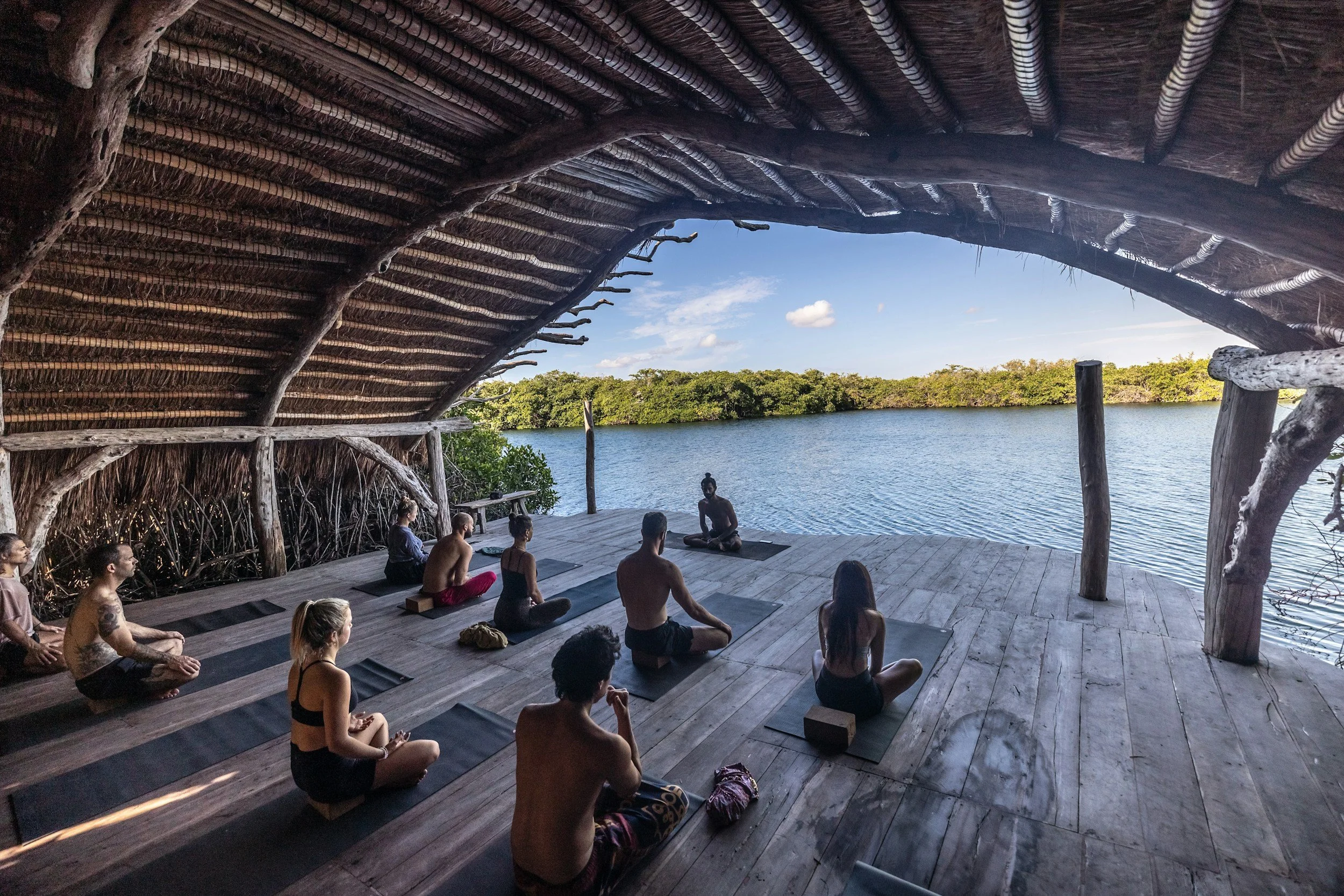9 Ways to Plan a More Environmentally-friendly Trip
There is not much that is more exciting than going on vacation, and part of the thrill is the anticipation leading up to it. Planning the route, booking accommodations, and choosing activities are all important aspects of trip preparation, and there is a lot to consider when making these decisions. Keeping in mind the prices, locations, and amenities, another important factor to account for is the environmental impact.
Here are 9 tips to make your next vacation more environmentally friendly.
1. Reduce plastic waste
It can sometimes be difficult to recycle properly when traveling, particularly in countries that struggle with effective waste management systems. Consequently, the best method to alleviate these challenges is to reduce overall plastic waste consumption. A few simple solutions include packing a reusable shopping bag, bringing reusable utensils for meals on the go, and bringing a reusable water bottle from home to fill up when possible. For concerns about countries without clean drinking water, there are also great portable water filters that can be used almost anywhere to make water from streams, the rain, and the tap safe to drink.
2. Conserve water and energy
Just as it is important to limit water and energy consumption at home, it is always advisable to use only what is necessary when traveling as well. Cutting back on electricity reduces the use of energy resources and lowers the corresponding carbon footprint while decreasing water usage also mitigates the impact of climate change. Conservation is even more critical in areas with limited access to clean water and energy supply. Therefore, any reduction will help cut financial costs, minimize the strain on the production process, and preserve resources for the rest of the community in the future.
3. Support local businesses
As a tourist or traveler, buying locally may seem like a small task to only contribute for a short time, but it can make a big difference. Not only does it support the families that run the businesses, but it boosts the local economy and enables them to continue their partnerships with local suppliers and other members of the community. Similarly to shopping at farmer’s markets or the corner store close to home, local stores sell produce, clothes, and even souvenirs that are most likely made with resources from the region rather than food and materials that have been shipped from all over the world. Ultimately, shopping locally helps the seller, their suppliers, the community, and the consumer as they will get fresher or more authentic products.
4. Respect wildlife and natural habitats
Ranging from the flora and fauna on remote hikes in the wilderness to the native species of squirrels found in big cities, respecting and protecting natural habitats remains an essential part of being a good traveler. Natural habitats often produce ecosystems that work to protect and provide for both the animals and the local communities. In many cases, Indigenous peoples have cared for and utilized the native environment around them as a source of food, water, materials for clothing, and tools for daily tasks. Caring for nature and wildlife as a guest shows respect for the people and their culture, but it also preserves the land and its beauty that attracts visitors in the first place.
5. Leave no trace
While suggestion #1 focused on reducing plastic waste, there will undoubtedly be instances where food wrappers, tissues, and other trash are unavoidable. In those cases, it is very important to make sure that none of it gets left behind or dropped along the route. The easiest way to prevent any accidental littering is to bring a small backpack throughout the day.
Just like some people will split their suitcases into two sections for clean and dirty laundry or bring a laundry bag to keep them separated, the same can be done for trash. Keeping it in one place until you find a bin or get back to your accommodation means it won’t become litter and there won’t be wrappers strewn in every pants and backpack pocket. Whether using one pocket of a backpack as the “trash pocket” or simply bringing a drawstring bag with a smaller reusable trash bag inside, leaving no trace should be one of the easier tips to incorporate when traveling.
6. Map out the route in advance
One of the easiest and most beneficial ways to reduce the environmental impact of a trip is to plan out the best route in advance. Minimizing overall transportation and choosing more eco-friendly methods will both lower emissions and cut costs. Researching the destination and planning activities ahead of time makes it easier to pick a starting point that’s the most geographically convenient location to start the journey in. When planning a two-week vacation with many day trips, look for somewhere central as a home base and check beforehand for any bus and train operators or car rentals when needed.
Conversely, when going away for a months-long backpacking journey, it would be more efficient to start in a place at one end of all the expected destinations and move linearly with many stops along the way. Taking public or local transit is often a great, affordable alternative that encourages a deeper connection with the people and their daily lives, and it often leads to unexpected unique stops along the way. For example, taking Colectivo (public bus) in Colombia from Medellin to Cali allowed me to stop in a small town called Salento for a brief stay. Salento ended up being my favorite place in the country because I met someone (on the bus!) who became one of my best friends from the trip, and I did what became one of my favorite hikes in my life.
For that reason, while flying may sometimes be quicker, alternative means of transport enable a more authentic experience that saves money and is more sustainable.
7. Research weather
It’s easy to know whether it will be hot or cold based on the destination and time of year, but researching more specific weather patterns and projections closer to the departure date can make a big difference. Checking how much rain there will be, the wind chill effect, and humidity percentage may encourage packing a thin poncho, a thicker rain jacket, more shorts than pants, or vice versa. Packing appropriately and avoiding bringing unnecessary items leads to lighter traveling which is better for both the environment and travelers themselves. Environmentally, heavier planes require more fuel, so less CO2 will be emitted if collective action leads people to pack less.
From a personal perspective, it is cheaper to fly with lighter luggage and easier to get around. Additionally, effective packing will avoid spending money on clothes or accessories that won’t be worn after the trip while taking limited time out of a vacation to shop instead of doing something more enjoyable.
8. Book environmentally friendly accommodations
Whether the next trip is to a resort in Bali or a backpacking adventure across South America, it’s important to look for accommodations with environmental certifications. Most hostels, homestays, Airbnbs, hotels, resorts, and other accommodations have website pages highlighting their efforts to reduce their respective carbon footprints, conserve the surrounding nature, and improve sustainability within their operations. There are many possible certifications, but some of the best ones to look out for are recognized by the Global Sustainable Tourism Council (GSTC), including EarthCheck and Travelife, among others.
Moreover, booking websites like Hotels.com, Booking.com, and Hostelworld have various filters for accommodations that have environmental certifications, charging stations for electric vehicles, and bicycle parking, and some have a grading system that distinguishes between different levels of sustainability. While the filters may not give the whole picture, it’s a good place to start when narrowing down the search.
9. Learn about environmental and cultural issues in advance
Part of any trip preparation should consist of researching the destination in advance. Spending just a few minutes learning about cultural differences and social practices can help ensure appropriate behavior upon arrival. In many places, there are specific dress requirements. This may be because of long-standing traditions at religious sites, cultural differences, or simply social norms.
Studying the animals and nature of upcoming destinations will also provide a better understanding of why certain species flourish there and how they contribute to the ecosystem and local societies. For example, in Thailand, elephants contribute to regeneration and increase biodiversity by facilitating seed dispersal across large distances. Historically, they have also held great significance in many cultural ceremonies. However, despite being native to the land, many of them are now held in captivity and used solely to boost the tourism industry. Researching real elephant sanctuaries (because not all sanctuaries are legitimate) in advance can benefit reintegration and conservation efforts while preventing any support from going to unethical organizations.
The same can be said for plants, staying on designated paths not only protects tourists from harmful species, but it also preserves endemic flora that play a significant role in cyclical ecosystems. Respecting the native people, plants, and animals will help to guarantee a better, safer, and more meaningful trip by promoting a stronger connection with the destination.
About the writer: Zach Lubin
“I graduated from the University of Glasgow in the summer of 2023 with an MA in International Relations. Focusing on global environmental governance and sustainability efforts, I have written on topics ranging from the disproportionate effects of climate change on women in rural Nepal to severe flooding in Pakistan. During my degree, I also completed a year abroad in South Korea and recently returned to the US after two months of conducting environmental research while backpacking through South America.
Feel free to reach out to me via LinkedIn to get in touch or learn more about my work.”
Sea Going Green is a sustainable tourism consultancy working together with tourism operators and coastal resorts to enhance their sustainability potential through our Green Transition Strategies. Interested in knowing more about what our strategies could do for your business? Schedule a discovery call!
Search the Blog….
Visit us on Instagram




















